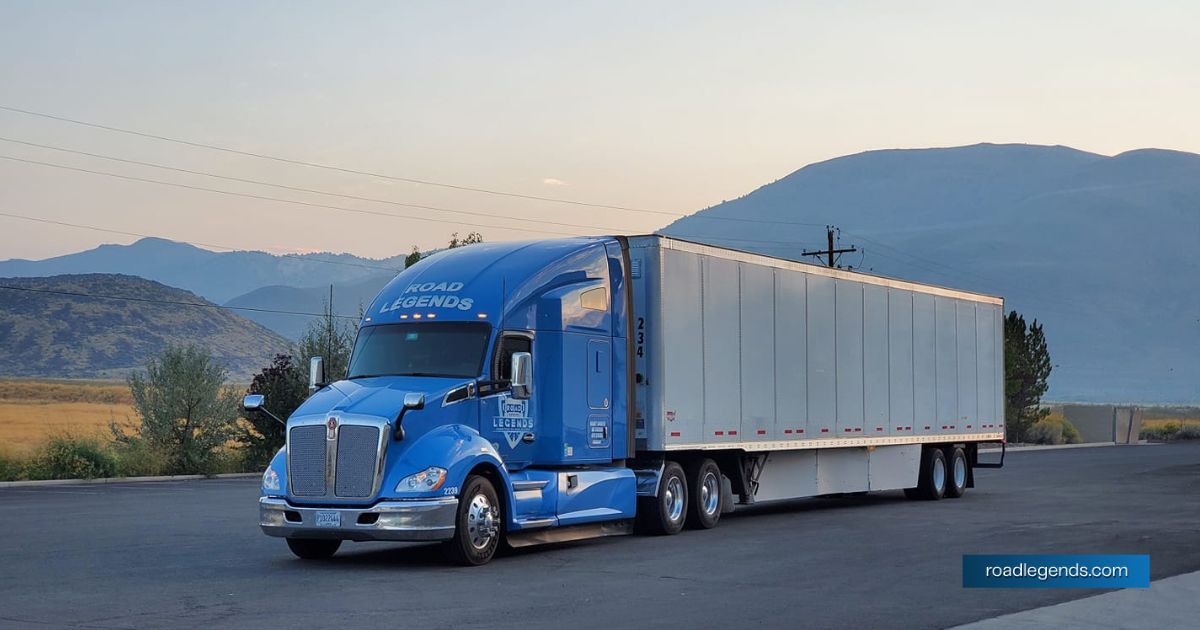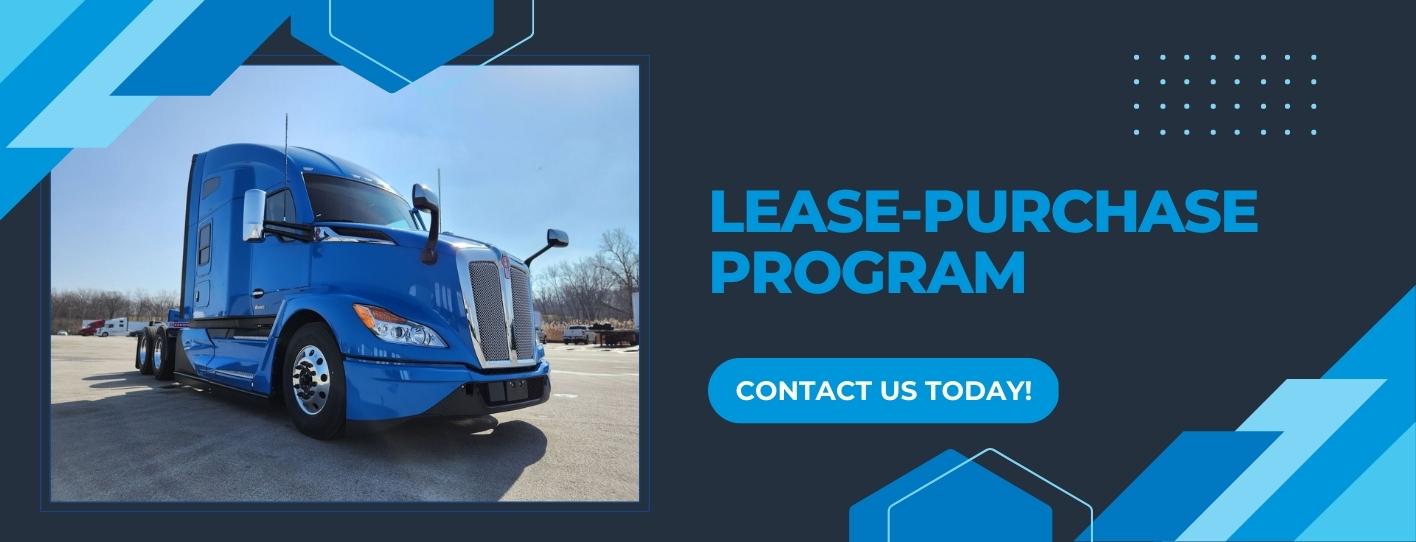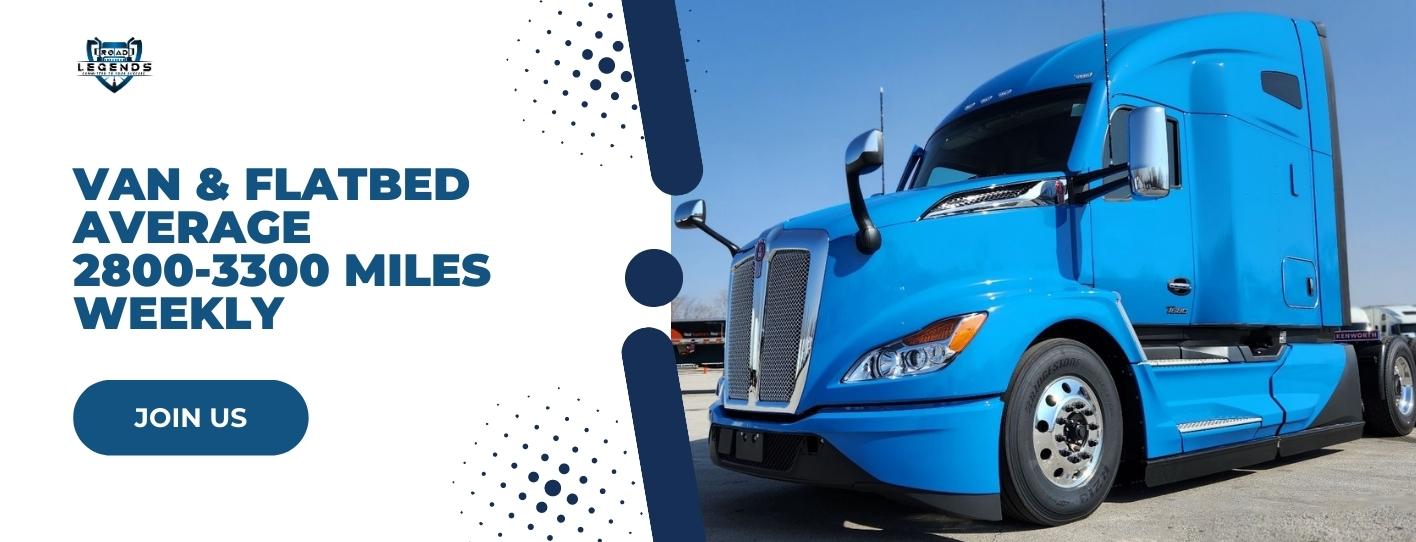
A Useful Guide to Understanding Truck Depreciation
Trucks are not just vehicles; they are valuable assets for businesses and individuals. However, like any other asset, trucks are subject to depreciation over time. Understanding truck depreciation is crucial for trucking owner-operator to make informed financial decisions. In this guide, we will look into the factors that contribute to truck depreciation, its impact on the value of your truck, and effective strategies to mitigate depreciation's effects.
Factors affecting truck depreciation
Truck depreciation is an inevitable reality that every truck owner must face. As trucks are utilized for transportation and business purposes, their value gradually diminishes over time. However, the rate of depreciation can vary significantly depending on several factors. Understanding these factors is crucial for owner-operators, as it allows them to anticipate the financial implications and make informed decisions about their assets. By looking into these factors, truck owners can gain valuable insights into the dynamics of depreciation and effectively manage their truck's value.
So, let's dive into the factors that play a significant role in determining the depreciation of trucks and explore how each one can impact the overall value of your valuable asset.
1. Age and mileage
The age and mileage of a truck play a significant role in determining its depreciation. As a truck ages and accumulates more miles, its value decreases. The wear and tear associated with higher mileage and the potential for mechanical issues make older trucks less desirable on the market.
2. Maintenance and condition
The condition of a truck has a direct impact on its depreciation. Regular maintenance, timely repairs, and keeping the truck in good working order can help slow down depreciation. Conversely, neglecting maintenance and allowing the truck's condition to deteriorate will accelerate depreciation.
3. Market demand and supply
Demand and supply dynamics also influence truck depreciation. If there is an oversupply of a particular truck model or a downturn in the industry, it can lead to decreased demand and lower prices, contributing to faster depreciation. Understanding market trends and timing your purchase or sale accordingly can help mitigate depreciation risks.
4. Technology and features advancements
In trucks, technology and the availability of new features can impact the depreciation of older trucks. As newer models with improved fuel efficiency, safety features, and technology enter the market, older trucks may lose value more rapidly. Staying informed about industry advancements and considering their impact on resale value is essential.
5. Brand and reputation
The brand and reputation of a truck manufacturer can affect depreciation rates. Trucks from reputable manufacturers with a history of reliability and durability tend to hold their value better than those from lesser-known brands. Buyers often prefer well-established brands due to perceived quality and lower risk, leading to slower depreciation.
How is truck value depreciation measured?
Measuring truck depreciation involves various methods and factors. While it is not an exact science, understanding the commonly used approaches can provide insights into how depreciation is calculated.
Understanding how truck value depreciation is measured can help owner-operators make informed decisions about their assets. By considering multiple factors and utilizing appropriate valuation methods, you can gain a clearer picture of your truck's worth over time and navigate the financial aspects of truck ownership more effectively.
Here are the primary methods used to measure truck value depreciation:
1. Percentage-based depreciation
Percentage-based depreciation is a straightforward approach that involves applying a fixed percentage to the truck's original purchase price to determine its depreciated value over time. For example, if a truck depreciates by 10% per year, its value after three years would be 70% of the original purchase price.
2. Residual value
Residual value is the estimated value a truck is expected to retain after a certain period or mileage. It considers factors such as age, mileage, condition, market demand, and historical resale data to determine the truck's future worth. Residual value calculations are commonly used in lease agreements with lease purchase trucking companies to assess the truck's value at the end of the lease term.
3. Market Comparison
Comparing the prices of similar trucks in the used market can provide a benchmark for assessing depreciation. By analyzing the selling prices of trucks with similar specifications, age, and mileage, you can gauge the average depreciation rate and estimate the value of your truck accordingly.
4. Book value
Book value refers to the value of a truck as recorded in financial statements or books of accounts. It is based on the initial purchase price minus accumulated depreciation. Book value provides an accounting perspective on a truck's worth but may not necessarily reflect its actual market value.
5. Condition assessment
Assessing the physical condition of a truck is another way to measure depreciation. Factors such as mechanical issues, wear and tear, cosmetic damage, and overall maintenance affect a truck's value. Appraisers or experts can evaluate these factors to estimate the impact of depreciation based on the truck's current condition.
Impact of truck depreciation
Truck depreciation has several implications for owner-operators in the trucking industry. Understanding the impact of depreciation is crucial for making informed decisions regarding truck acquisition, resale, and overall financial planning. Depreciation not only affects the monetary value of a truck but also has broader consequences for profitability, budgeting, and long-term financial sustainability. In this section, we will explore the various ways in which truck depreciation can impact owners-operators, shedding light on the importance of managing and mitigating depreciation effects. By recognizing these impacts, you can take proactive measures to minimize losses, optimize asset utilization, and make strategic decisions that contribute to the success of your trucking business.
1. Financial loss depreciation
This results in a decrease in the value of your truck over time. If you decide to sell or trade-in your truck, you may experience a financial loss compared to the initial purchase price. Understanding the rate of depreciation can help you anticipate and plan for these potential losses.
2. Higher ownership costs
As a truck depreciates, its ownership costs may increase. Older trucks require more frequent repairs, replacement parts, and maintenance, leading to higher expenses. Additionally, the diminished value of a depreciated truck can impact insurance premiums and financing options, further increasing ownership costs.
3. Limited resale value
Truck depreciation affects the resale value of your vehicle. If you rely on selling your truck in the future to upgrade to a newer model or recoup some of your investment, rapid depreciation can significantly limit your options and potential profits.
4. Loan and lease considerations
Truck depreciation also influences loan and lease agreements. If you have a loan or lease on your truck, the depreciation rate can impact the equity in your vehicle and the terms of your agreement. Understanding the potential effects of depreciation is crucial when entering into financing arrangements.
Mitigating truck depreciation
Truck depreciation is a natural part of vehicle ownership. As trucks age and accumulate miles, their value gradually declines. However, while depreciation is inevitable, there are strategies that owner-operators can employ to mitigate its impact. By taking proactive steps and implementing smart practices, it is possible to slow down the rate of depreciation and preserve the value of your truck. In this section, we will explore some effective ways to mitigate truck depreciation and maximize the longevity of your investment. By following these strategies, you can minimize the financial impact of depreciation and potentially retain a higher resale value when the time comes to upgrade or sell your truck.
1. Regular maintenance and care
Proper maintenance and care can help slow down depreciation. Adhering to the manufacturer's recommended maintenance schedule, addressing repairs promptly, and keeping the truck clean and well-maintained can help preserve its value.
2. Avoid overloading and abuse
Overloading a truck or subjecting it to excessive wear and tear can accelerate depreciation. Following load capacity guidelines, driving responsibly, and avoiding harsh driving habits can extend the lifespan of your truck and mitigate depreciation.
3. Stay informed about market trends
Keeping an eye on market trends and industry developments can help you make informed decisions. Being aware of shifts in demand, emerging technologies, and market conditions can assist you in timing your purchases and sales to minimize depreciation risks.
4. Choose respected brands
Investing in trucks from reputable manufacturers known for their reliability and durability can help mitigate depreciation. Respected brands often have better resale values due to their reputation for quality, which can result in slower depreciation.
Last thoughts
Truck depreciation is an inevitable aspect of owning and operating trucks. Understanding the factors that contribute to depreciation, its impact on your truck's value, and effective strategies to mitigate its effects can help you make sound financial decisions and protect your investment. By considering age and mileage, maintenance and condition, market dynamics, technology, and brand reputation, you can navigate the depreciation landscape more effectively. Remember, proper maintenance, staying informed, and choosing the right truck for your needs are key elements in reducing the impact of depreciation and maximizing the value of your truck.

The “Hidden” Paycheck: How Fuel & Maintenance Support Shape Real Net Pay
Learn how fuel costs, maintenance planning, and equipment efficiency impact real net pay in trucking and why the “hidden paycheck” matters in lease purchase programs.

Percentage vs. CPM: How to Choose the Right Pay Plan at Road Legends
Learn the difference between percentage pay and CPM in trucking. Understand break-even points, income stability, and how to choose the right pay plan for your driving style.

What Is a Walk-Away Lease in Trucking? The Advantage Most Drivers Miss
Learn what a walk-away lease in trucking is, how it differs from traditional lease purchase programs, and why many CDL-A drivers choose flexibility over long-term debt.

